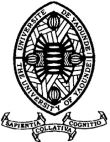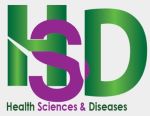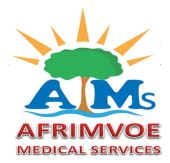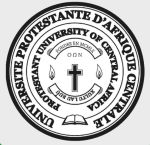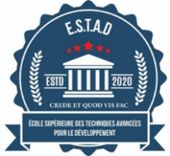Performance Evaluation of HIV Screening Tests in Gabon
Evaluation de la Performance des Tests de Dépistage de l’Infection à VIH au Gabon
Keywords:
HIV, Rapid Diagnostic test, ELISA, Performance evaluation, Screening Strategy, GabonAbstract
RESUME
Introduction. Au Gabon, l’affluence des nouvelles trousses de dépistage imposent une nouvelle évaluation et l’actualisation de l’algorithme utilisables au niveau périphérique et intermédiaire. L’objectif de notre étude est d’évaluer la performance des tests de dépistage de l’infection à VIH au Gabon. Méthodologie. Il s’agissait d’une étude rétrospective sur une période de 13 ans allant de 2007 à 2020, portant sur l’évaluation de 19 trousses de dépistage du VIH (4 tests ELISA et 15 TDR) à l’aide d’un panel de 500 sera d’adultes vivant au Gabon. L’étude a été menée au Laboratoire National de Référence IST/Sida de Libreville (Gabon). Résultats. Parmi les 19 tests évalués 17 répondaient aux critères d’acceptabilité tels que définis par l’Organisation Mondiale de la Santé (OMS) (sensibilité ≥99% et spécificité ≥ 98%). Au total, 11 trousses disponibles au Gabon et préqualifiés OMS (ou CE, FDA, UNSAIDS) ont finalement été retenues pour l’élaboration des stratégies de dépistage. A l’analyse, les trousses Acon Ultra HIV ½ et Reveal Rapid HIV antibody test présentaient une sensibilité inférieure à 98%. La configuration utilisant le test Double Check Gold Ultra HIV 1 et 2 comme premier test de dépistage puis Determine Combo Ag/Ab comme deuxième trousse de dépistage en cas de sérum positif et ABON HIV 1/2/O comme trousse de confirmation est la mieux adaptée en termes de fiabilité et de coût (4 000 FCFA). Au niveau intermédiaire, parmi les stratégies présentant une excellente fiabilité, celle associant le test ELISA MP HIV ½ Ag/Ac Combo comme premier test de dépistage, puis Double Check Gold Ultra HIV 1 et 2 comme deuxième trousse de dépistage (en cas de sérum positif) et, ABON HIV 1/2/O comme trousse de confirmation est la mieux adaptée en termes de sensibilité, de spécificité et de coût (3 850 FCFA). Conclusion. Les tests évalués au cours de cette étude présentent une excellence sensibilité et une bonne spécificité sur la population Gabonaise.
ABSTRACT
Introduction. In Gabon, the influx of new screening kits has made it necessary to re-evaluate and update the algorithm for use at the peripheral and intermediate levels. The aim of our study was to evaluate the performance of HIV screening tests in Gabon. Methodology. This was a retrospective study over a 13-year period from 2007 to 2020, evaluating 19 HIV test kits (4 ELISA tests and 15 RDTs) using a panel of 500 adults living in Gabon. The study was conducted at the National STI/AIDS Reference Laboratory in Libreville (Gabon). Results. Of the 19 tests evaluated, 17 met the acceptability criteria as defined by the World Health Organization (WHO) (sensitivity ≥99% and specificity ≥ 98%). In total, 11 kits available in Gabon and WHO prequalified (or CE, FDA, UNSAIDS) were finally retained for the development of screening strategies. On analysis, the Acon Ultra HIV ½ and Reveal Rapid HIV antibody test kits had a sensitivity of less than 98%. The configuration using the Double Check Gold Ultra HIV 1 and 2 test as the first screening test, then Determine Combo Ag/Ab as the second screening kit in the event of a positive serum and ABON HIV 1/2/O as the confirmation kit was the most suitable in terms of reliability and cost (4,000 FCFA). At the intermediate level, among the strategies with excellent reliability, combining the MP HIV ½ Ag/Ac Combo ELISA test as the first screening test, then Double Check Gold Ultra HIV 1 and 2 as the second screening kit (in the event of a positive serum) and ABON HIV 1/2/O as the confirmation kit is the most suitable in terms of sensitivity, specificity and cost (3,850 FCFA). Conclusion. The tests evaluated in this study have excellent sensitivity and specificity in the Gabonese population.
References
Amadou A, Kouka N, Elhadj Mahamane A, Chanteau S. Évaluation de cinq tests rapides et de deux algorithmes pour le diagnostic de l’infection par le VIH au Niger. Bull Soc Pathol Exot. 2005; 98 (1): 5-8
World Health Organization. WHO recommandations for HIV antibody testing. Wkly Epidemiol Rec. 1992; 67: 145-52.
Constantine NT, Fox E, Abbatte EA, Woody JN. Diagnostic usefulness of five screening assays for HIV in an East African city where prevalence of infection is low. AIDS 1989; 3(5): 313-7.
Behets F, Disasi A, Ryder RW, et al. Comparison of five commercial enzyme-linked immunosorbent assays and Western immunoblotting for human immunodeficiency virus antibody detection in serum samples from Central Africa. J Clin Microbiol 1991; 29 (10): 2280-4.
Belec L, Tevi-Benissan C, Gresenguet G, Payan C. Diagnostic de l’infection par le VIH en Afrique subsaharienne. Stratégies alternatives. Tech Biol 1993; 19: 148-61.
Koblavi-Dème S, Maurice C, Yavo D, et al. Sensitivity and specficity of human immunodeficiency virus rapid serologic assays and testing algorithms in an antenatal clinic in Abidjan, Ivory Coast. J Clin Microbiol 2001; 39(5): 1808-12.
Nerrienet E, Mfoupouendoun J, Njinku B, et al. Évaluation d’un algorithme sérologique associant deux tests rapides pour le dépistage individuel de l’infection à VIH dans la Province Ouest du Cameroun. Bull Liais Doc OCEAC 2001; 34: 11-5.
Dagnra AY, Prince-David M, Gaba J, et al. Évaluation de la performance de huit tests de diagnostic de l’infection à VIH à Lome (Togo). Med Trop 2002; 62(5): 507-9.
Makuwa M, Souquière S, Niangui M-T, et al. Reliability of rapid diagnostic tests for HIV variant infection. J Virol Meth 2002; 103 (2): 183-90.
Ouassa T, Inwoley A, Loukou Yao G, et al. Evaluation de six tests rapides pour le dépistage des anticoprs anti VIH 1 et 2. J. sci. pharm. Biol. 2007 ; 8 (2): 57-64.
Salou M, DAGNRA AY, Milaga KD, et al. Evaluation de la performance de trois tests de diagnostic de l’infection à VIH à Lomé (Togo). Revue Bio-Africa. 2010; 8:7-12.
Ndjoyi-Mbiguino A, Bélec L. Évaluation de trousses de dépistage de l’infection à VIH au Gabon. Cahiers Santé. 2005;15 (1): 23-29.
Enquête Démographique et de Santé du Gabon, 2012. Disponible sur: http://gabon.unfpa.org/sites/default/files/pub-pdf/SR198.pdf. Consulté le 16 Mars 2017.
Note d’information de l’OMS relative à l’utilisation des tests de diagnostic rapide VIH. Disponible sur: www.who.int. Consulté le 16 Mars 2017.
Couroucé AM, Le groupe de travail “rétrovirus” de la SFTSc. Réévaluation de la sensibilité de 19 trousses de dépistage des anticorps anti VIH. Revue Française des Laboratoires. 1995; 279(1995): 102-105.
Behets F, Disasi A, Ryder RW, et al. Comparison of five commercial enzyme-linked immunosorbent assays and Western immunoblotting for human immunodeficiency virus antibody detection in serum samples from Central Africa. J Clin Microbiol 1991; 29(10): 2280-4.
Laleman G, Kambale M, Van Kerckhoven I, et al. A simplified and less expensive strategy for confirming anti HIV-1 screening results in a diagnostic laboratory in Lubumbashi, Zaire. Ann Soc Belg Med Trop 1991; 71: 287-94.
Belec L, Mbopi Keou F-X, Caroff B, Bottier B, Goldchmidt P, Matta F. Western blot indéterminé et infection par le VIH. Eurobiologiste 1991; 196: 325-32.
Behets F, Bishagara K, Disasi A, et al. Diagnosis of HIV infection with instrument-free assays as an alternative to the ELISA and Western blot testing strategy : An evaluation in Central Africa. J Acquir Immune Defic Syndr 1992 ; 5 (9): 878-82.
Gresenguet G, Tevi-Benissan C, Payan C, et al. Alternative strategy for the diagnosis of HIV infection in sub-saharan Africa. Value of the sequential combination of the ELISA test and a 2nd generation rapid test. Bull Soc Pathol Exot 1993 ; 86(4): 236-42.
Nerrienet E, Mfoupouendoun J, Njinku B, et al. Évaluation d’un algorithme sérologique associant deux tests rapides pour le dépistage individuel de l’infection à VIH dans la Province Ouest du Cameroun. Bull Liais Doc OCEAC 2001; 34: 11-5
Downloads
Published
How to Cite
Issue
Section
License
Copyright (c) 2024 Zoa-Assoumou S, Nzengui-Nzengui G.F, M’boyis-Kamdem H, Mougola-Bissiengou P, Ndjoyi-Mbiguino A

This work is licensed under a Creative Commons Attribution-NonCommercial-NoDerivatives 4.0 International License.
Authors who publish with this journal agree to the following terms:
- Authors retain copyright and grant the journal right of first publication with the work simultaneously licensed under a Creative Commons Attribution License CC BY-NC-ND 4.0 that allows others to share the work with an acknowledgement of the work's authorship and initial publication in this journal.
- Authors are able to enter into separate, additional contractual arrangements for the non-exclusive distribution of the journal's published version of the work (e.g., post it to an institutional repository or publish it in a book), with an acknowledgement of its initial publication in this journal.
- Authors are permitted and encouraged to post their work online (e.g., in institutional repositories or on their website) prior to and during the submission process, as it can lead to productive exchanges, as well as earlier and greater citation of published work

